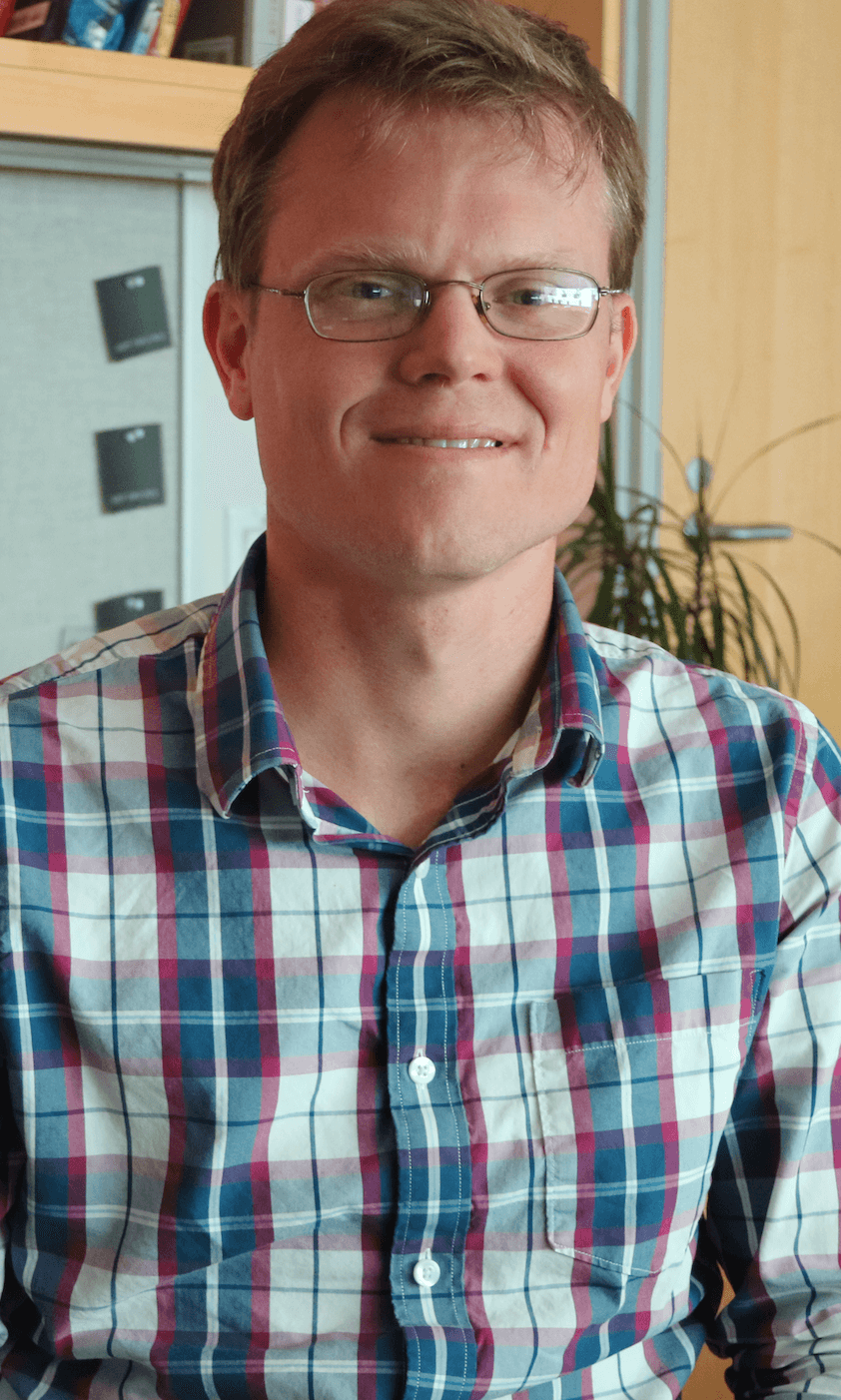
Interview with Peder Larson by Alexa Rocourt
Q: Tell me about your work.
A: I focus on developing advanced imaging technologies based on MRI, mostly. We are trying to expand either what types of diseases we can look at or improve the accuracy with which we can ultimately assess disease.
Q:What’s your favorite part about being a scientist?
A: I think it’s being able to explore questions and try to solve problems that nobody has ever asked or solved before. At UCSF, we’re going towards the goal of advanced healthcare and improving health. That’s very exciting and motivating.
Q:What have you created or discovered that you are most proud of or excited about?
A: I’ve worked on a lot of the technology that we’re using for this new type of metabolic MRI for cancer applications. We’ve been working on that for a number of years, and now we’re regularly doing patient studies with some of the tools that I helped develop and am continuing to develop. That technology is really moving forward into patient studies and that’s exciting.
Q:At the end of the day, why does your work matter?
A: Very simply, if it makes a difference to patients. If they get the type of scan that I’ve worked a lot on, and that information changes the way either in which they live their life or the type of treatment that they get, that’s what is impactful for me.
Q: Outside of work, what do you do to relax?
A: I like to bicycle. When I can, I bike in to work, or I take the train and my bike, or I take my kids in the back of my trailer. I like to do some gardening but I don’t get too much time to do it. I have a two-year-old and a four-year-old and they keep me very busy. That’s why it’s nice that we can do the bicycling together and spend time together.
Q:What situation do you think you’d feel the most out-of-place in? What is something that makes you uncomfortable?
A: I’ll admit that I call myself bioengineer now, but my biology is very scrappy. I’ve learned it all on the job, but I never took any biology or chemistry courses. It’s not the most uncomfortable, but that’s an area where I should know more, and I rely on a lot of other scientists to help me. It’s not my most comfortable place.
Q:In 50-100 years, what do you want to be remembered for?
A: I see right now there are new frontiers for MRI for cancer imaging and we even have collaborations with radiation oncology to guide new treatment options. I hope I’m part of bringing these new frontiers into clinical practice. Cancer imaging and more personalized MRI scans are some big, new frontiers of the technology that I’d like to contribute to.